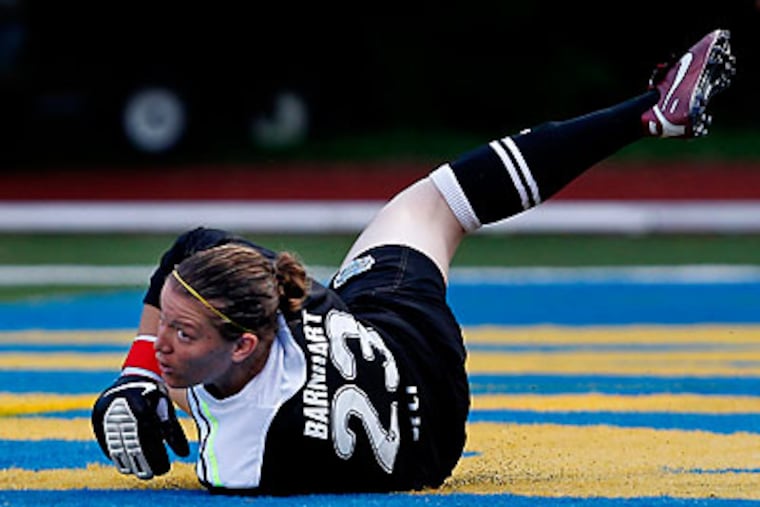Dire times for WPS
FOR THE SECOND time since the turn of the century, women's professional soccer in America is in danger of becoming obsolete.

FOR THE SECOND time since the turn of the century, women's professional soccer in America is in danger of becoming obsolete.
Women's Professional Soccer, currently the top league in the United States, has fallen to just five bona fide franchises. As a result, the U.S. Soccer Federation, America's governing body for club soccer, was in deliberation with WPS commissioner Jennifer O'Sullivan from its offices in Chicago yesterday, deciding whether it's best to just pull the plug.
Before the start of the 2011 season, the USSF granted WPS a 1-year waiver to increase its club count to eight teams, the minimum for a USSF-sanctioned entity to be granted what's referred to as Division I (top-tier) professional status. But with WPS' number dwindling from six clubs to just five with no new investors at the immediate-ready, it could be lights out for a league that came into existence in 2009, following the 2008 Olympic Games in Beijing.
"It is a little bit frustrating to be in the predicament we are now," said David Halstead, owner of Philly's Independence franchise and head of WPS' expansion committee. "I think early on when the league was conceived and rolled out, expectations were outrageously optimistic and high. We were paying players tons of money and trying to attract major corporate sponsors. If you look at the success of any major sports league, it's evident that has never been a model for sustainable growth."
While the WPS saw steady numbers in both overall attendance and television ratings in 2011, the stance of the USSF is whether the WPS has the means to sustain itself. It was only on the heels of a successful U.S. campaign at the 2011 FIFA Women's World Cup in Germany that the WPS found renewed interest. Still, its latest annual report conveyed a league in turmoil, specifically after Florida-based franchise MagicJack SC folded this year. Adding insult to injury, MagicJack (formerly the Washington Freedom) owner Dan Borislow has filed a lawsuit against WPS, claiming he was forced out.
"The key for us isn't just 1 year, it's for the overall future of the league," a U.S. Soccer source told the Daily News. "The goal is to see that there is sustainable growth; we are looking long term."
Help could be on the way as Halstead confirmed reports that WPS is in the final stage of negotiations with a potential ownership group to bring a team into Connecticut in 2012. Halstead also noted that interest has been generated by potential owners from Michigan, Texas, Washington, D.C., and Los Angeles.
"I'll be honest, we [as owners] know we have a screwed-up business model," said Halstead. "For the first time this season one of our owners lost $1 million. I don't care who you are, you lose that amount of money in economic times like these and it hurts. But we have been actively working on creating a smart, safer business model, one that will only aid the overall growth of this league. We knew that until we did that no one would want to invest in WPS. It's that simple."
And U.S. Soccer's stance?
"I hope it's stressed to [U.S. Soccer by commissioner O'Sullivan] that we can't rush expansion if this is truly going to work," Halstead said. "U.S. Soccer should pay more attention to the five teams that are thriving than concentrating all their energies on the WPS fielding eight teams. Let's just take our time."